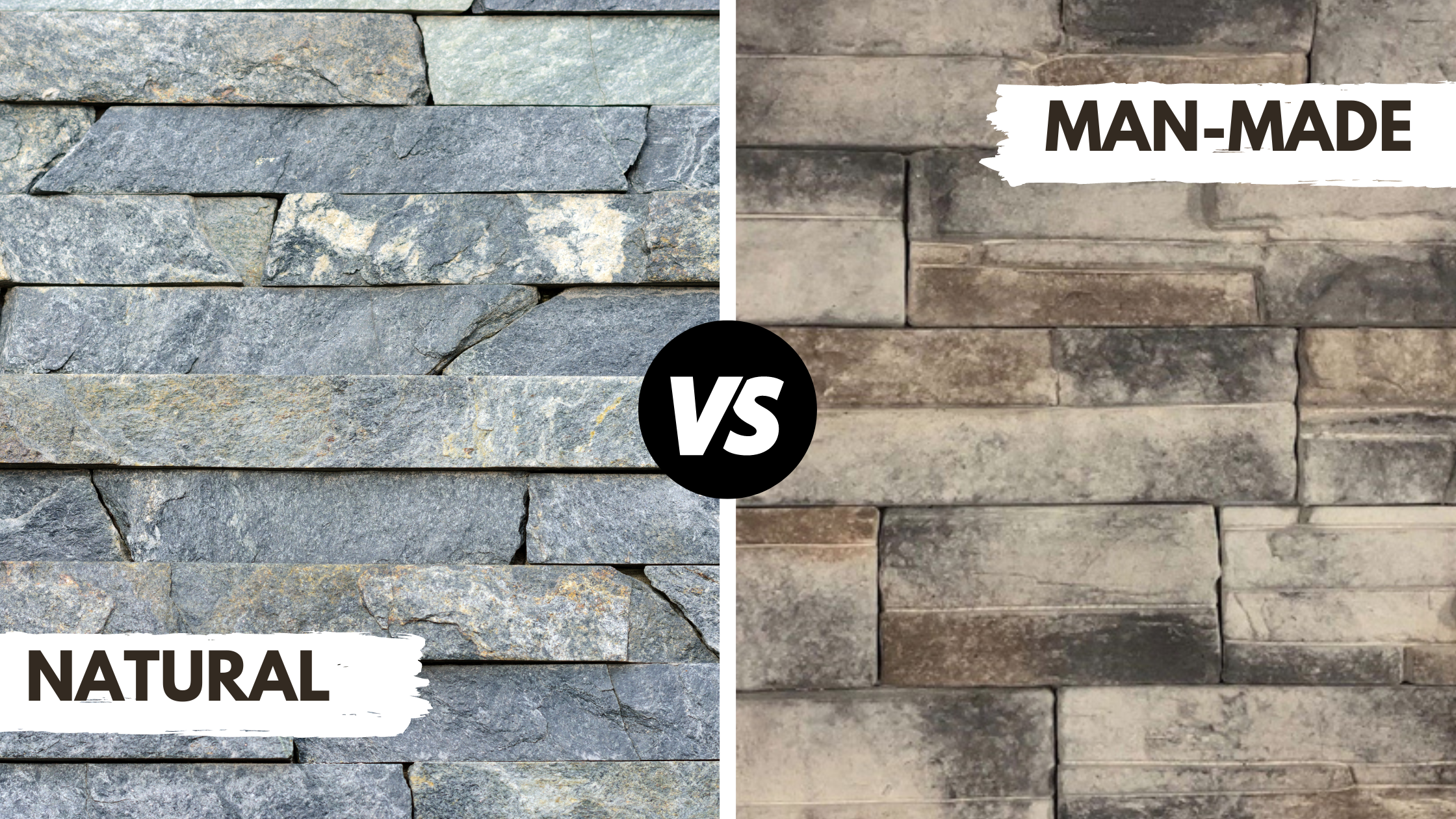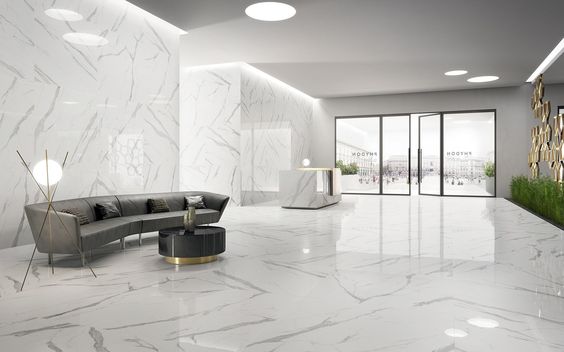
Natural vs. Man-Made Stone
The debate between Natural stone and Man-Made stone has persisted for decades. Like any enduring debate, a conclusive resolution remains elusive. A fundamental reason for this is the distinct properties inherent to each material, rendering a universal decision inappropriate. Ultimately, the choice depends on specific case requirements, often personalized.
Let’s define these materials:
Natural Stone is precisely as its name implies—mineral formations crafted by nature over millions of years, extracted, shaped, polished, and made available for consumers.
Man-Made Stone (also referred to as Cultured or Manufactured stone) is a blend of materials such as cement, quartz, stone dust, polymers, and chemicals combined in specific ratios, cast to desired forms, colored, and polished to resemble natural stone. It frequently undergoes treatments and strengthening processes to enhance heat, dirt, and germ resistance.

Comparison of Natural and Man-Made Stone:
Natural Stone:
- Exceptionally heat-resistant, surpassing engineered options.
- Certain types like Granite offer durability and shock resistance, though natural stones can be brittle.
- Cracks are often reparable without conspicuous visual marks.
- Offers diverse textures and granular choices.
- Associated with status and visual distinction.
Engineered Stones:
- Not uniformly as heat-resistant as natural alternatives.
- Highly durable and shock-resistant, ideal for heavy use like in restaurants.
- Scratch-resistant.
- Some varieties provide resistance to germs, fungus, oil, and dirt after specific treatments.
- Repairing broken pieces is generally not feasible.
- Offers a more limited range of choices and is typically perceived less favorably against natural stone.
Considering the pros and cons, the selection varies depending on circumstances. Residential settings often favor natural options, reflecting personal pride and aspirations. Individuals may opt for modest granite or luxurious exported selections based on means. Conversely, eateries and businesses favor engineered stones due to their resilience under intense usage.

Factors to Consider:
- Project Application: Consider the intended use—personal or commercial, indoor or outdoor. Natural stones enhance landscaping and outdoor areas, whereas engineered stones require elevation above ground.
- Cost: Cost of material and installation significantly influences decisions. High-end engineered stones may rival low-end natural stones in price.
- Finished Look: Natural stones, when polished, offer a grand and unique appearance. They can be intricately cut and carved by skilled craftsmen, preserving a natural appearance. Engineered stones lack this flexibility.
Regardless of the choice, professional installation by certified experts is crucial due to the weight and expense of these materials. Properly installed, engineered stones can perform comparably to natural ones over time, though they may not retain their original appearance.

In conclusion, the selection is subjective and situation-dependent. Each material has its merits, with natural stone suiting some projects and engineered stone ideal for others. Ultimately, the debate is a matter of personal preference and necessity.


